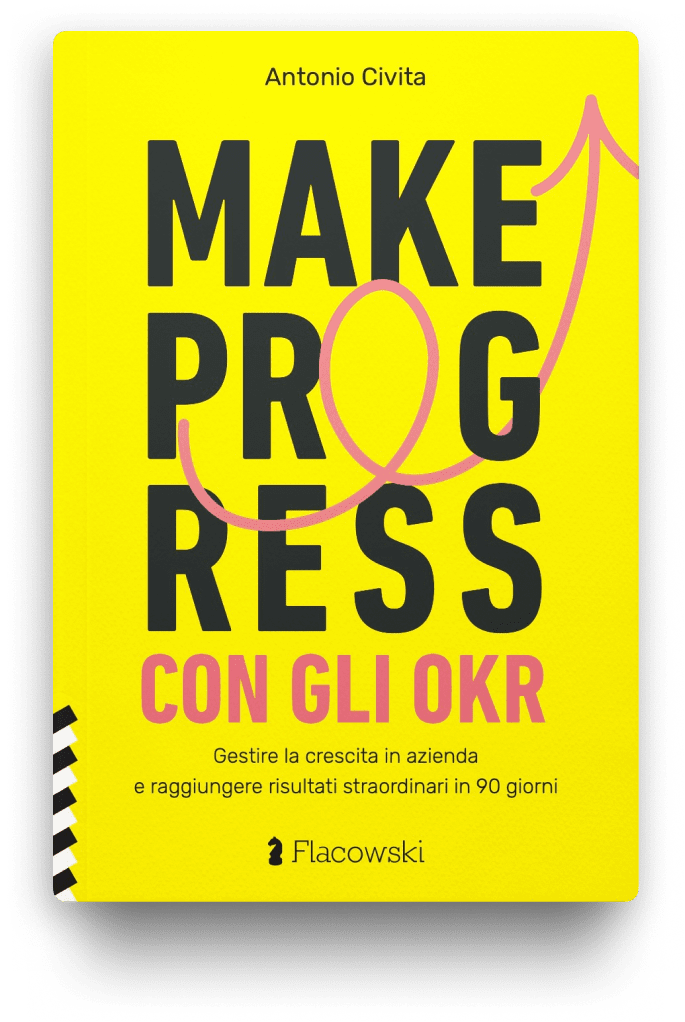
Strategic changes do not start at the top of the company. They start with your calendar, your appointments, and your priorities.
– Andy Grove, Intel’s third CEO
—
There is a subtle but fundamental difference between “doing one’s job” and “doing one’s job.”
Doing one’s job is what we are paid to do. It is completing tasks, answering emails, attending meetings, following the checklist. It is the operation that fills our days and makes us feel productive.
But what happens when, although we do our job flawlessly, the results don’t come as they used to?
Andy Grove, Intel’s legendary CEO, called this phenomenon a Strategic Inflection Point. It is not a sudden collapse, but an almost imperceptible change in the rules of the game. A new technology, a new competitor, a new rulebook, one that he calls “10x strength” meaning 10 times stronger than the others so much so that it alters the environment so profoundly that the old maps no longer work. It could be the AI…but not only that.
This is where strategic dissonance arises: a widening gap between the official strategy, the one stated in the documents, and the actual actions, the ones people on the front lines are forced to take in order to survive.
It is the feeling that something is not right, that the engine is running on empty despite our best efforts.
At such times, continuing to “do your job” means ignoring the signs and driving while looking in the rearview mirror.
The real “work,” the strategic work, is different.
The real work is to recognize that your calendar è your strategy. Not presentation slides, not good intentions. The people and projects you devote your time to are a direct expression of your true priorities.
MAKE PROGRESS® is founded on this principle: progress is not an accident of the road, but the result of intentionally calibrated choices. Of moving from reaction to action, from managing urgency to building the future.
When you find yourself at a turning point, your job is no longer just to execute what you have always done, but to understand how the scenario is changing, what your position on the map is, and to swerve sharply to avoid ending up in the ravine of irrelevance.
It means having the courage to question the calendar. It means asking, “Is this meeting helping us make progress on our real goals or is it just a bad habit?” It means transforming your priorities from a to-do list to a plan to generate a measurable outcome.
The nice thing is that all this does not require authorization from above.
It requires focus and alignment, two pillars of our method:
- focus: staying focused on what matters for long periods of time allows you to achieve incredible results
- alignment: gain the autonomy to invest all your energy in the same direction.
You can start by looking at your calendar and asking yourself a simple question for each colored block: “Is this activity craft or is it work? Is it moving me forward or keeping me busy?”
The strategy is not an annual event.
The strategy has already started this morning when you opened your calendar.
Would you like to do a little test?
Open your calendar for the past week. For each appointment, label it as “craft” if what you did fell into the category of maintenance or response activities typical of your role, or as “work” if you worked on achieving your goals or updating your strategy.
What is the budget? What does it tell you about your real strategy?
Let’s build time together for strategy
The main result of working with the MAKE PROGRESS® method is that the strategy finally becomes visible in the calendar. The space for intentional thinking and action is created.
The exercise I proposed is only the first step. Managing the calendar is not an ancillary activity, but the beating heart of strategic execution. This is where you win or lose the battle for progress toward your goals.
Those who work with us adopt a specific calendar, built to intentionally create the space needed to work both “in the business” (on operations) and “on the business” (on strategy). Over time, we have developed a method for diagnosing one’s time use, building one’s ideal week, and implementing it. We also help teams do the same, creating an integrated rhythm for strategy management.
I am thinking of doing a specific workshop on this very topic but first I need your opinion to see if it is something you really feel the need for.
Yes, I want to participate in the workshop. >
(Click to help me build it around your needs, including ideal day and time.)
No, I am not interested >
(You will receive no further communication on this specific topic.)
I remain in listening,
ALWAYS MAKE PROGRESS ⤴
Antonio
–

